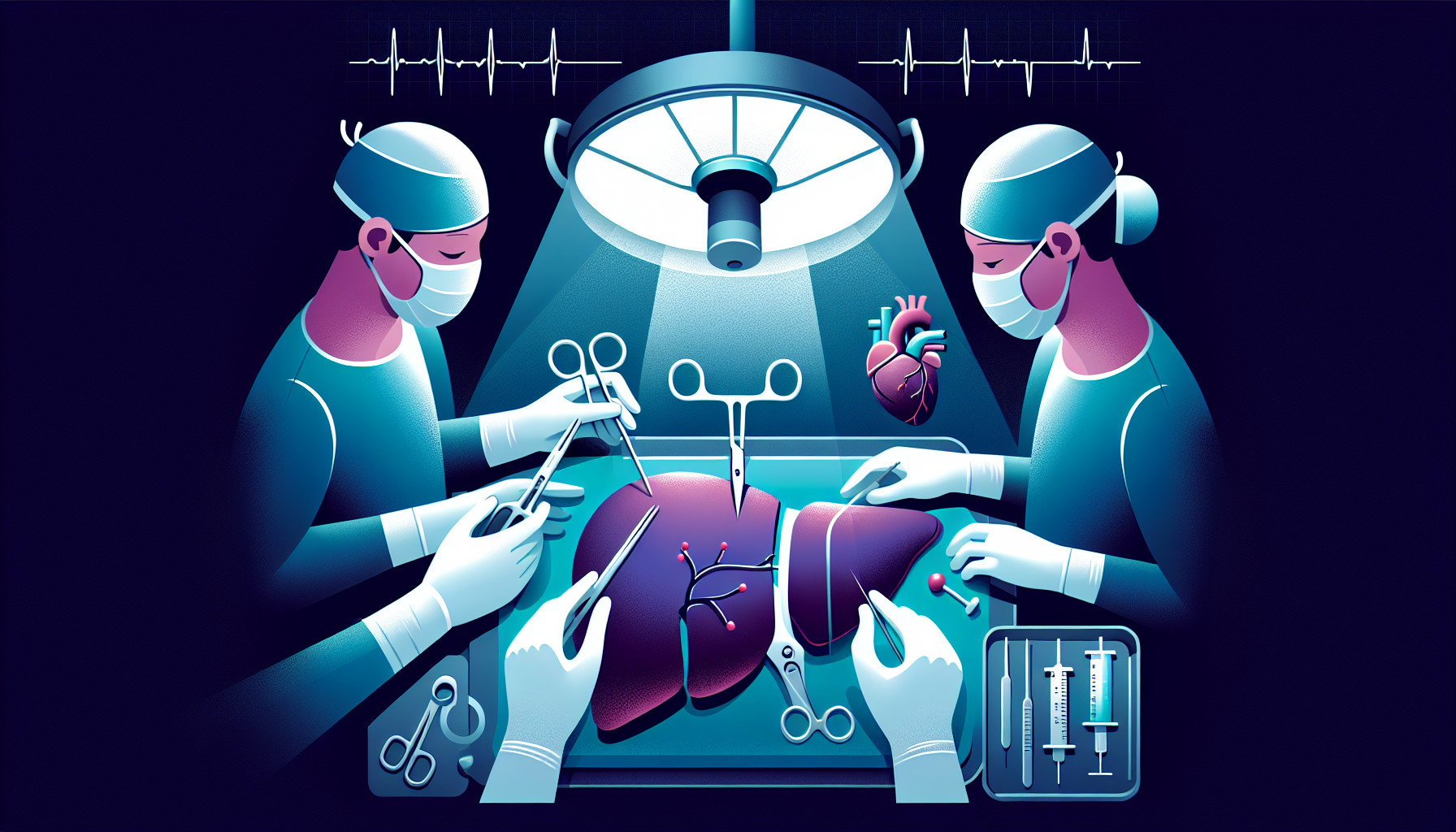Our Summary
This research paper is about the heart-related complications that can occur after a liver transplant, particularly in patients with a condition called cirrhotic cardiomyopathy. This condition affects the heart’s ability to pump blood effectively and is often seen in people with severe liver disease. The study looks at how this heart condition can affect the outcomes of liver transplantation.
It also examines the changes in blood flow (hemodynamic impairment) and irregularities in the dilation and contraction of blood vessels (vasomotor tone abnormalities) that can occur in these patients. These complications can have a significant impact on the success of the transplant and the patient’s recovery.
In simpler terms, this research is studying the problems that can happen in the heart and blood vessels of people who have had a liver transplant, especially those who already have a certain heart disease linked to serious liver conditions.
FAQs
- What are the potential post-liver transplant complications mentioned in the article?
- What is cirrhotic cardiomyopathy and how does it relate to liver transplants?
- What are vasomotor tone abnormalities and how can they impact a patient after a liver transplant?
Doctor’s Tip
One helpful tip a doctor might tell a patient about liver transplant is to follow a strict medication regimen to prevent rejection of the new liver. It is important to take all prescribed medications as directed and attend all follow-up appointments to monitor the health of the new liver. Additionally, maintaining a healthy lifestyle with regular exercise and a balanced diet can help support the success of the transplant.
Suitable For
Patients who are typically recommended for liver transplant are those with end-stage liver disease or liver failure, often due to conditions such as cirrhosis, hepatitis, or liver cancer. These patients may experience symptoms such as jaundice, ascites, fatigue, and confusion, and may have complications such as liver-related kidney problems or hepatic encephalopathy.
Additionally, patients with certain liver conditions such as primary biliary cholangitis, autoimmune hepatitis, or Wilson’s disease may also be recommended for liver transplant if their disease is not responding to other treatments.
Overall, patients who are recommended for liver transplant are those who have a high risk of mortality without the transplant, and who are likely to have a good outcome with a new liver.
Timeline
- Before liver transplant:
- Patient is diagnosed with liver disease, often as a result of conditions such as cirrhosis, hepatitis, or liver cancer.
- Patient undergoes medical evaluation and testing to determine if they are a suitable candidate for a liver transplant.
- Patient is placed on a waiting list for a donor liver, which can take months to years depending on availability.
- Patient may experience symptoms such as fatigue, jaundice, weight loss, and fluid retention as their liver function deteriorates.
- Patient receives pre-transplant care to manage symptoms and complications of their liver disease.
- After liver transplant:
- Patient undergoes surgery to remove their diseased liver and replace it with a healthy donor liver.
- Patient is closely monitored in the intensive care unit immediately following surgery for any complications.
- Patient begins a regimen of immunosuppressant medications to prevent rejection of the donor liver.
- Patient undergoes regular follow-up appointments and monitoring to ensure the success of the transplant and monitor for any complications.
- Patient may experience side effects of immunosuppressant medications, such as increased risk of infection, diabetes, and kidney damage.
- Patient gradually recovers and resumes normal activities, with the goal of achieving a good quality of life with their new liver.
What to Ask Your Doctor
- Am I a candidate for a liver transplant?
- What is the success rate of liver transplants at this hospital?
- How long is the waiting list for a liver transplant?
- What are the potential risks and complications associated with a liver transplant?
- How long is the recovery process after a liver transplant?
- Will I need to take immunosuppressant medication after the transplant?
- What lifestyle changes will I need to make after a liver transplant?
- How often will I need to follow up with the transplant team after the surgery?
- What is the long-term outlook for liver transplant recipients?
- Are there any alternative treatments or therapies that I should consider before opting for a liver transplant?
Reference
Authors: Feltracco P, Barbieri S, Carollo C, Bortolato A, Michieletto E, Bertacco A, Gringeri E, Cillo U. Journal: Transplant Rev (Orlando). 2019 Oct;33(4):219-230. doi: 10.1016/j.trre.2019.06.005. Epub 2019 Jul 8. PMID: 31327573
